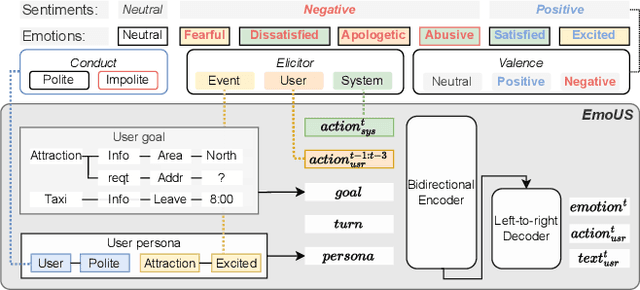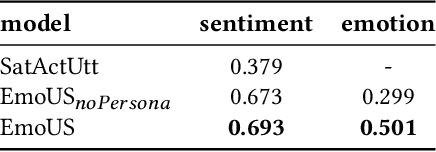EmoUS: Simulating User Emotions in Task-Oriented Dialogues
Paper and Code
Jun 02, 2023



Existing user simulators (USs) for task-oriented dialogue systems only model user behaviour on semantic and natural language levels without considering the user persona and emotions. Optimising dialogue systems with generic user policies, which cannot model diverse user behaviour driven by different emotional states, may result in a high drop-off rate when deployed in the real world. Thus, we present EmoUS, a user simulator that learns to simulate user emotions alongside user behaviour. EmoUS generates user emotions, semantic actions, and natural language responses based on the user goal, the dialogue history, and the user persona. By analysing what kind of system behaviour elicits what kind of user emotions, we show that EmoUS can be used as a probe to evaluate a variety of dialogue systems and in particular their effect on the user's emotional state. Developing such methods is important in the age of large language model chat-bots and rising ethical concerns.
 Add to Chrome
Add to Chrome Add to Firefox
Add to Firefox Add to Edge
Add to Edge